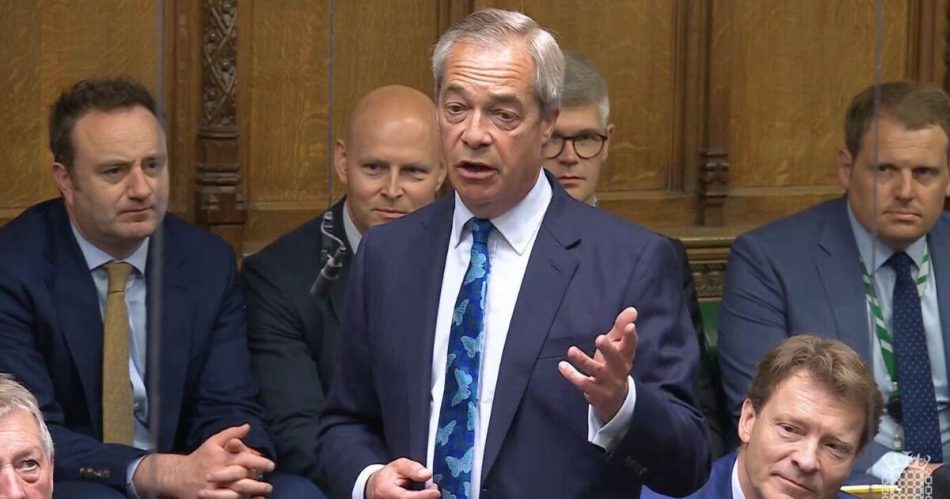A recent trend has emerged at Prime Ministers’ Questions. Each week, after Keir Starmer and Kemi Badenoch have had their exchange, a series of Labour backbenchers will stand up. Among the usual points about constituency matters, there is typically at least one Member who will take aim at either Reform UK or its leader, Nigel Farage. This fits with Labour’s overall political strategy of going after the Clacton MP personally, with a series of attack adverts produced last weekend.
Now, for the first time, The Spectator has obtained data which shows the scale of the assault which Reform UK is facing each week. So far this year, there have been 24 sessions of Prime Ministers’ Questions or Deputy PMQs. Figures from the House of Commons library show that Starmer, his deputy and their backbenchers took aim at Reform or its leader some 36 times in total this year – the equivalent of 1.5 times per session in 2025. Ukraine and the NHS are mentioned frequently.
The format of PMQs means that Reform are not able to respond to such attacks. After a Labour backbencher delivers his or her jibe, Keir Starmer can then stand up to stick the boot in. Farage and his three other MPs can apply in the ballot for questions – but in a chamber of 650, the odds do not favour them. Reform has only had eight questions this year, with Farage asking four of these. This means that for every nine attacks on Reform, Farage himself has only able to respond once.
For every nine attacks on Reform, Farage himself has only able to respond once.
Much like parliament, PMQs is well-designed for the traditional two-party system. The Leader of the Opposition gets six questions, with hordes of backbenchers on hand to ask useful supplementaries. But never in the postwar era have we seen a situation like now, where Reform is drawing fire from both the front and back benches, week in and week out. Critics will argue that the system is merely working as intended: if Reform wants more questions, they argue, they ought to win more seats.
Yet the danger is that fair-minded viewers will be turned off by seeing Labour MP after Labour MP queuing up to attack Farage, with no chance of reply. Thus far, evidence suggests that the current PMQs strategy has not succeeded, with Reform now averaging a nine-point lead in The Spectator’s poll of polls. Having been mentioned just once at PMQs between July and December 2024, the uptick in verbal attacks since then is a backhanded compliment to Reform UK’s subsequent growth.
The critique of Farage and others is that parliament is not working for the people. By endlessly asking about Reform, Labour risks vindicating this argument and exposing their own impotence. It was only a few years ago that Boris Johnson was able to fight and win a general election on the theme of ‘parliament versus the people’. Attacked in the House of Commons and blocked from the House of Lords, Reform will likely try to lean into this argument come 2029.







Comments